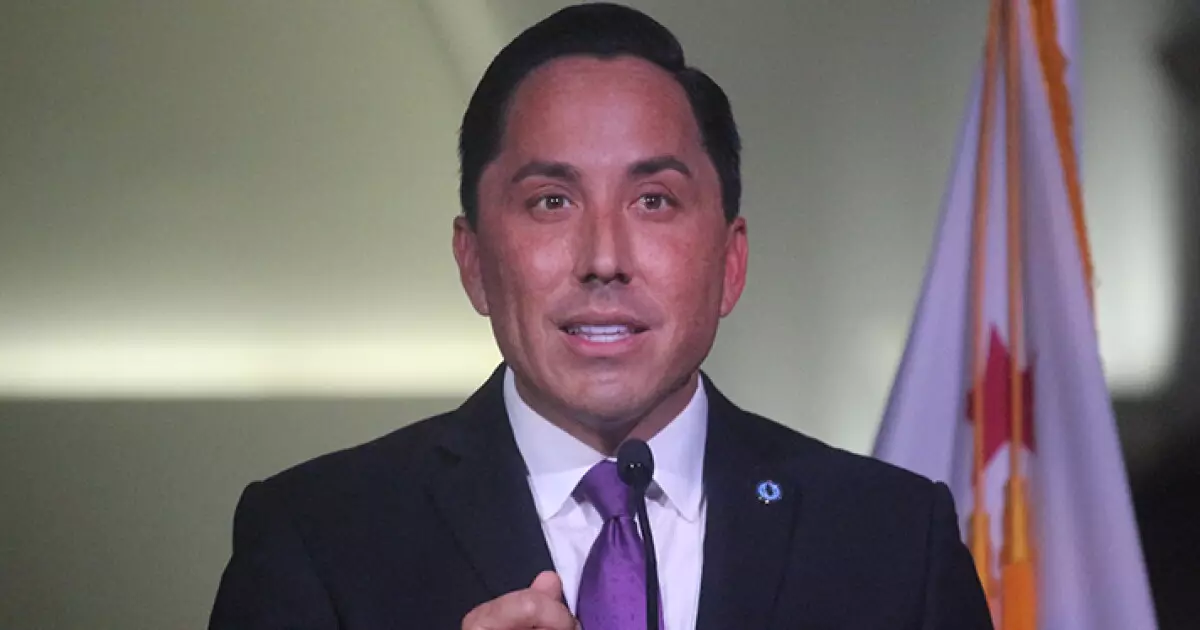San Diego Mayor Todd Gloria recently unveiled a $5.65 billion proposed budget that heavily relies on borrowing and short-term fixes to address a structural deficit. These one-time maneuvers include eliminating $30 million in scheduled reserve contributions and choosing to borrow $25 million instead of using cash for infrastructure projects. While these decisions may help close the existing deficit, it raises concerns about the sustainability of such practices in the long run.
Implications of One-Time Fixes
By utilizing these one-time fixes, Mayor Gloria’s budget aims to increase spending on crucial areas such as homeless prevention programs, street paving, and flood abatement. However, this comes at the cost of cutting non-personnel expenses from department budgets, free Wi-Fi services, and the Office of Immigrant Affairs. Such cuts may have unintended consequences on the overall well-being of the community, especially for vulnerable populations.
While Mayor Gloria acknowledges that his budget heavily depends on one-time fixes, he emphasizes the need to address the city’s structural deficit. The reliance on short-term solutions raises questions about the city’s ability to sustain funding for key priorities in the future, such as addressing homelessness, infrastructure maintenance, and public safety. It is crucial to evaluate the long-term implications of these budgetary decisions on the city’s financial health and residents’ quality of life.
The proposed budget includes significant increases in homelessness spending, with plans to allocate $110 million in the upcoming fiscal year. Programs aimed at reducing homelessness would receive additional funding, including the conversion of city-owned land into safe parking spaces and the establishment of a 1,000-bed homeless shelter. These initiatives demonstrate a commitment to addressing pressing social issues, but questions have been raised about the feasibility and cost-effectiveness of these projects.
Mayor Gloria’s budget also prioritizes investments in infrastructure, with plans to allocate funds for street paving, flood control, and green infrastructure projects. The proposal includes a street paving management plan to streamline funding allocation and prioritize maintenance needs. While these investments are necessary for the city’s growth and development, the sustainability of funding sources and the long-term impact of these projects need to be carefully considered.
Tax Increase Proposals
City leaders are considering tax increase proposals to address future budget challenges more effectively. A sales tax hike and a stormwater fee increase could potentially generate additional revenue for critical areas such as flood prevention and infrastructure upgrades. However, the feasibility of these proposals and their impact on residents’ financial burdens require thorough evaluation before implementation.
Mayor Todd Gloria’s proposed budget for San Diego reflects a mix of short-term fixes and long-term investments aimed at addressing pressing financial challenges. While the budget prioritizes key areas such as homelessness, infrastructure, and public safety, there are concerns about the sustainability of funding sources and the potential impact of budgetary decisions on the city’s overall financial health. As the budget negotiations progress, it is essential for city officials to carefully assess the trade-offs involved in the proposed budget and ensure that the financial decisions align with the long-term interests of San Diego residents.

